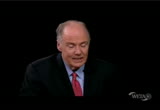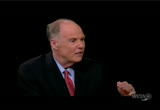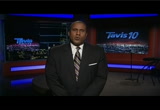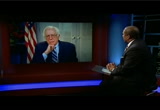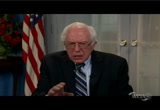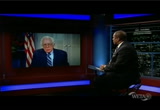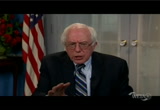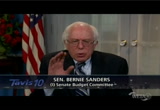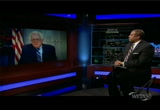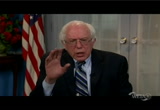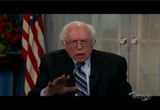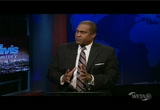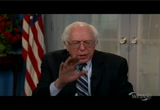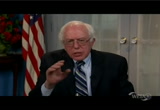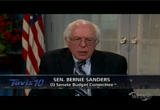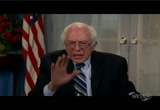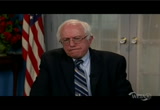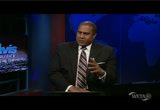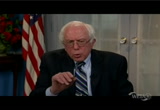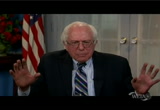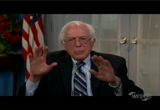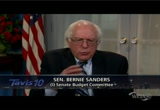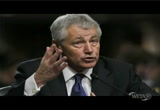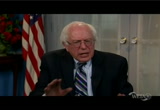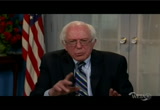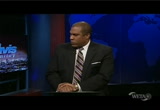tv Tavis Smiley PBS February 5, 2013 12:30am-1:00am EST
12:30 am
got dicey over there. >> that-- secretary current ton was essential to our rebalancing our efforts in the world. the president and she asked the question of the administration where are we overinvested and where are we underinvested where. do we have our assets underutilized. where are we missing in the world. and she and the president made the decision that the united states was dramatically underinvested in asia. >> rose: and overinvested in the middle east. >> overinvested certainly in terms of our military efforts in the middle east. absolutely. and that it was going to be, in order to get the freedom of maneuver to reinvest in these places in the world that are really about the future of the world, and the future for u.s. interests, we needed to draw down these military, the military face of foreign policy in iraq and get on that path in afghanistan and reinvest tremendously in asia. secretary clinton's first trip as secretary of state
12:31 am
was to asia. that's the first time a secretary of state has taken his or her first trip to asia since dean rusk in 1961. and from then on she just kept on pushing our efforts and our efforts in asia. you look at her work with as on. you look at her work on the south china sea. you look at her work with burma in terms of bringing burma not community of democracy, potentially. right? that's a good list of contributions. >> tom donilon national security advisor to president obama as they enter the second four years of that tenure in the white house. thank you for joining us. see you next time. captioning sponsored by rose communications captioned by media access group at wgbh access.wgbh.org tavis: good evening.
12:33 am
smiley. tonight a conversation with the longest serving independent in congressional history, bernie sanders. he is a member of the senate budget committee, which puts him at the front seat of the budget battles. last week congress voted do we devoted to temporarily suspend the debt ceiling limits -- last week congress voted to temporarily suspend the limits on the debt ceiling. we will get a look at high- profile nominations. we are glad you joined us.
12:34 am
king had that said there is always the right time to do the right thing. i try to live my life every day by doing the right thing. we know that we are only halfway to completely do. . walmart committed $2 billion to tighunfing h as we work together, we can stamp hunger out. pbs station from viewers like you. thank you. >> bernie sanders is the longest serving independence in congress in his third term after 16 years
12:35 am
in the house. he is also the new chair of the veterans affairs committee. it is always good to have you on this program. thanks for your time. >> great to be with you. >> let me start with where we are now. we are caught between the president's inauguration day speech and his state of the union address. i want to cover both in just a second and so much more, but let me start with the inauguration speech. this is the first time we have gotten a chance to talk in person. we did not get a chance to talk that day, so let me start by asking your thoughts about the inauguration speech. the media story on the speech was that it was a very liberal, very progressive view the president expressed from what he wanted to get done in the next four years as the longest serving independent, how did you hear the speech.
12:36 am
but the phraseology, we have to ask ourselves exactly what that means. was a real tribute to the struggle of gay people? absolutely. was it important he mentioned global warming. it is the major planetary crisis this world faces. that was extremely important, but when it comes to an issue i feel strongly, the collapse of the middle class and the fact that over 46 million americans are living in poverty and the gap between the rich and everyone else growing wider, we did not get into that issue, so what we need to do and what he needs to do is to understand that deficit reduction is an important issue. we have a trillion dollar deficit, but we also have to
12:37 am
address the basic economic issue of the decline of the middle class, the fact that real unemployment tactics, a real unemployment is not 7.8%. it is 14%, counting those people who have given up work and are working part-time. did he pay enough attention to that issue? i think not, and that is the issue we have to focus on. >> there are so many issues, and we will not get to all of them. let me advance further, and we will come back. you just said what he did not get into. he could not get everything into that speech, but give me a sense of what you would like to hear him. front and center, the challenge you would like to hear him offer to congress when he gives -- gets to the speech in a couple days and he has time to develop what is in his heart. >> i think the most important issue for him to speak about is
12:38 am
the understanding this country cannot go forward in terms of an austerity program, cut, but we have to do the opposite, and that is to create millions of johnson and now that our nation desperately needs. we have got 23 million people unemployed or underemployed in terms of unemployment rates. the numbers are phenomenally high, but i want to hear the president say that at a time our infrastructure is crumbling, at a time we need to transform our energy system away from fossil fuel to deal with global warming, he is going to push major investments in those areas to create millions of jobs. in terms of deficit reduction, what we have to understand is that we have to go forward, but we cannot do it on the backs of the elderly, the children, the
12:39 am
sick, and the poor. i would like to hear the president say i am not going to cut social security, which has nothing to do with the deficit. i am not going to cut medicare, veterans' programs, or medicaid. i am going to ask the largest corporations in this country, one-fourth of whom are paying nothing in taxes, to start paying their fair share of taxes. >> what most concerns you? i want to be specific in asking. what most concerns you about what the president is likely to give on? you just listed a couple of things, but what is your greatest fear about what he may compromise? >> in terms of a grand bargain, i am afraid the president will continue down the path of more cuts. we did get $700 billion over 10 years, from people earning
12:40 am
$400,000 a year or more. that is good, but that $700 billion is not 1.6 trillion the president originally wanted, so we need more revenue for deficit reduction, and i hope the president remains strong on that. what worries me very much is the president may end up supporting something called chained cpi, which would make significant cuts starting immediately on social security, veterans' needs, and that worries me. in addition, i am worried about cuts in benefits to medicare and medicaid. politics.'s talk we will come back to policy in a second. the policy cleans the clocks in january. they have agreed to put off the debt ceiling debate. we have got a little extra time
12:41 am
on the debt ceiling, but they are going to be looking to extract some blood. they want revenge for having gotten so beaten down by the president in the fiscal cliff negotiations. where politics are concerned, how accurate is the narrative i just laid out? >> i think you are right, but here is the. you did not mention, and that is a poll after poll shows us the american people are clear. they understand in this difficult economy you do not cut social security or disability programs. you do not head -- you do not cut medicare or medicaid. if the president were to go forward and say, we are not going to balance the budget on the backs of the most vulnerable, but we are going to look for hundreds of billions of dollars in revenue from those companies that are stashing their money in the cayman islands or bermuda or other tax
12:42 am
havens. we are going to take on hard look at all corporate loopholes. we are going to look at the absurdity of continuing to give tax breaks and subsidies to the largest oil companies, who are enormously profitable. the bottom line is the president should be doing -- it is not hard politics. it is what the american people want. they want jobs. they want infrastructure. people want, in terms of deficit reduction, large corporate. these guys on wall street making huge amounts of money. the american people are pretty clear across the political spectrum that they want those to help us through deficit reduction, not elderly people, not children, not sick people.
12:43 am
tavis: agree on the analysis you laid out, but i want to push back, because i disagree on the fact it is not hard politics. for barack obama it is hard politics. the politics are hard for him, because he has already signaled he is willing to talk about deficit reduction. a lot of them are disturbed. he has gotten comfortable willing to make deficit reduction a priority, given the pain people are going through right now. paul krugman writes about this, stop embracing the notion of deficit reduction. now there are others who make this point all the time. you have got people pushing him to talk about deficit reduction. if you look at sunday morning talk shows, and i am not talking about the right. i am talking about democrats and folks on the left who are saying he has to agree to some
12:44 am
entitlement cut spending. turn on the tv, and folks on the left are saying when the politics are concerned, he has to agree to entitlement cuts. tell me why they are not hard. >> you are right. >> back it up and understand there are millionaires who have spent hundreds of millions of dollars to create this type of culture that says we are going to have to cut social security, medicare, and medicaid. that is what they have been promoted for years, and it is true there are democrats who are more into that, but i am saying if you look at poll after poll, and the american people have not bought into that. sunday talk shows, yes. the average american, no. the average american understand people on top, large
12:45 am
corporations are doing well while ordinary americans are hurting, and the most important issue is not deficit reduction. it is the absolute need to create millions of jobs. i am worried you have got a generation of young people, many of them coming out of college in debt, worried about workers, laid off. they will never have another job in their lives. we have got to address the reality we are still living in a major recession, and we have to create those jobs. tavis: what is going to happen to tax rates? >> from my perspective, i think the president was right originally in saying we should do away with bush tax breaks for people making $250,000 a year or more. that is an issue i would certainly revisit. right now in terms of where we go from here, i think it is important to look get reality.
12:46 am
one out of four profitable corporations in america does not pay a nickel in taxes. we have corporate tax breaks on their profits but are the lowest may have been in many years, so i think it is appropriate to start asking corporate america to help us with deficit reduction. >> whether one agrees or disagrees, one cannot argue at the first term we have a wall street friendly guy, and he has just been nominated another wall street friendly guy. i have been hearing and reading you have some concerns about the treasury secretary, so tell me more. >> what i have been very concerned about from day one, let me be clear and i supported barack obama originally. i supported him for reelection,
12:47 am
and the alternative for mitt romney is very clear for everybody, and i think the president has done and not very good job in many areas, but one thing that concerns me is his reliance on wall street type people in terms of financial matters. he is part of that background. he works at citigroup several years ago, when the president conceded to the republicans an extension of the bush tax breaks for the wealthy. that was an issue, i was on the floor of the senate for eight and a half hours about, so i think at a time when we need to understand that in the long run, the middle class is not going to grow, and our economy is not going to be strong and unless we tackled the enormous power and greed of wall street, unless we do that, we are going to continue to have serious
12:48 am
economic problems, and it bothers me obama keep springing into his cabinet and his financial team people from wall street. my own view is we have got to start breaking up these huge financial institutions, the top six of which have assets equivalent to 2/3 of gdp in the united states. three out of the top four are bigger than the ones when we build amount because they were too big to fail. i worry about it. i worry about them, rather than giving us somebody prepared to take on wall street, the man they start investing in productive economy rather than to maintain the gambling casino. tavis: >> when both parties are bossed by big business, how do you do that?
12:49 am
>> you have laid out a big issue. when it comes to wall street, nobody should think congress regulates wall street. quite the opposite. wall street has enormous power over the republican party. a enormous power over the democratic party, and when you throw in the disastrous citizens united supreme court decision, giving these guys even more power to buy and sell politicians, we are in difficult shape, but we have to acknowledge what you say, the power of wall street of owning and having significant control over both parties. that is the reality, and that is the reality we have to address and stay focused on. tavis: one of the ways we might push back on money being the mother of all politics, one pushed back would be some serious campaign finance reform.
12:50 am
there was hope the president might get around to that, but both he and ronnie played by the rules the last time around. -- and romney played by the rules the last time around. it raises this question, what evidence do you see this president is serious? i have not heard him say anything about campaign finance reform. how do we get to that if this president will not put finance reform on the table? >> you are raising the right questions, and the answers are difficult. the only way we move this country is overturning citizens united, moving to public funding of elections through a very strong grass-roots movement that gives the president and members
12:51 am
of congress and offer they cannot refuse. people have got to understand the issue of in congress is not what the media talks about or why can the democrats and republicans get along? the issue is that to a significant degree the congress of the united states is controlled by a handful of extraordinarily wealthy people and corporations, wall street at the top of list, and unless we address that issue, i fear for the middle class. i fear for our kids and for seniors. i will give you one example. you have a business roundtable, which is the organization representing ceo's of major corporations. these guys make huge amounts of money. some of them who are worth hundreds of millions of dollars. all of them have this great retirement package the average
12:52 am
american could not dream of. they made an announcement it was their view we should raise the social security age to 70 and the medicare eligibility age to 70 as well. can you conceive of the arrogance of these people who are in the top fifth of 1% telling working families before they can collect social security they have got to be 70, so all this is about is the continuation of class warfare being perpetrated by people who have incredible wealth, incredible power. citizens united makes it even worse, and at the end of the day, unless we have a strong grass-roots political movement which says, we are not going to maintain unequal distribution of wealth in america, excuse me, the united states government is supposed to represent all of the
12:53 am
people, kids and the elderly, not just billionaires. until we have the movement i doubt we are going to have the kind of political changes in washington we need. tavis: some would argue the only way we can deal with this would be our constitutional amendment. as you and i both know, a constitutional amendment is the most difficult staying -- difficult thing to get done. what are your thoughts about whether or not it might require an might it be possible a constitutional amendment could do something about money in our politics? >> i am not a great friend of bringing home a constitutional amendment every other day, but i do believe on this issue, campaign finance reform is such
12:54 am
an enormous issue. it speaks to the heart and soul of american democracy that is the route to go on. i have introduced a constitutional amendment to overturn citizens united and make it clear the congress and state legislatures to have the ability and power to regulate and get corporate funding out of political campaigns. >> let me talk about other issues in the news. let's get your take. chuck hagel, is he going to make it through? >> my guess is he probably will. tavis: will you vote for him? >> not sure sure. i have met him for many years. i am concerned about his feeling about women in general, about gays in the military as well.
12:55 am
he reassured me his views have evolved and change, and that is good, but i have concerns. tavis: immigration, the president has given his speech on it. the senate has come forth with its proposal. the ultimate question is whether or not you expect we will see meaningful immigration reform. again tavis: i would -- >> i would say we have a reasonable shot to do that. the hispanic community was involved in obama's reelection. democrats know that. republicans are nervous about their political future with regards to the hispanic community, so i think in terms of public support there is an understanding it was simply unfair that 11 million people continue to live in the dark, not having legal rights.
12:56 am
there has to be a path toward citizenship. my guess is that will probably happen. tavis: pbs is a smart audience. you can read about it. it is too long to explain in 20 seconds, but it is meaningful, and that is the notion of whether or not there will ever be filibuster reform in your body. >> it is i huge issue, and i hope everybody in america understands what is about. since obama has been president, the republicans have done everything they can to obstruct any type of legislation that benefits working people, addressing global warming and many other issues. the number of senators and worked very hard to bring about real filibuster reform. what does it mean?
12:57 am
the senate is not a house. a senator strongly disagrees he or she should be able to get on the floor and talk as long as he or she wants about the issues, but after the debate is over, if the people have nothing more to say, we need 51 votes, not 60 votes to pass major legislation. that is why i voted against the so-called filibuster reform, which was not really filibuster reform. we are not going to pass any significant legislation dealing with the economy, dealing with global warming, dealing with anything, unless we have 51 votes. by the time you get to 60 votes, it is going to be watered down. >> i want to ask what your primary goal is not that you are the chair of the veterans committee. >> we have many problems in the
12:58 am
veterans community and many assets as well. i want to make sure every veteran understands the benefits to which he or she is entitled. i want to deal with the backlog in terms of the amount of time it takes to get benefits. i want to deal with the suicide issue. veterans are killing themselves of rates that are off the chart. we have to address ptsd. there is a lot to do. tavis: it is good to have you on this program. always good to talk to you and get your take on the issues of the day. that is our show for tonight. thanks for watching. until tomorrow night, keep the faith. today's show, visit tavis smiley at pbs.org. join me next time for a conversation always the author
12:59 am
on her latest book about haiti. that is next time. we will see you then. >> there is a saying that dr. king had that said there is right thing. i try to live my life every day by doing the right thing. we know that we are only halfway to completely eliminating hunger and we have work to do. walmart committed $2 billion t fighting hunger in the u.s. as we work together, we can stamp hunger out. >> and by contributions to your pbs station from viewers like you. thank you. >> be more. pbs.
83 Views
IN COLLECTIONS
WETA (PBS) Television Archive
Television Archive  Television Archive News Search Service
Television Archive News Search Service 
Uploaded by TV Archive on

 Live Music Archive
Live Music Archive Librivox Free Audio
Librivox Free Audio Metropolitan Museum
Metropolitan Museum Cleveland Museum of Art
Cleveland Museum of Art Internet Arcade
Internet Arcade Console Living Room
Console Living Room Books to Borrow
Books to Borrow Open Library
Open Library TV News
TV News Understanding 9/11
Understanding 9/11